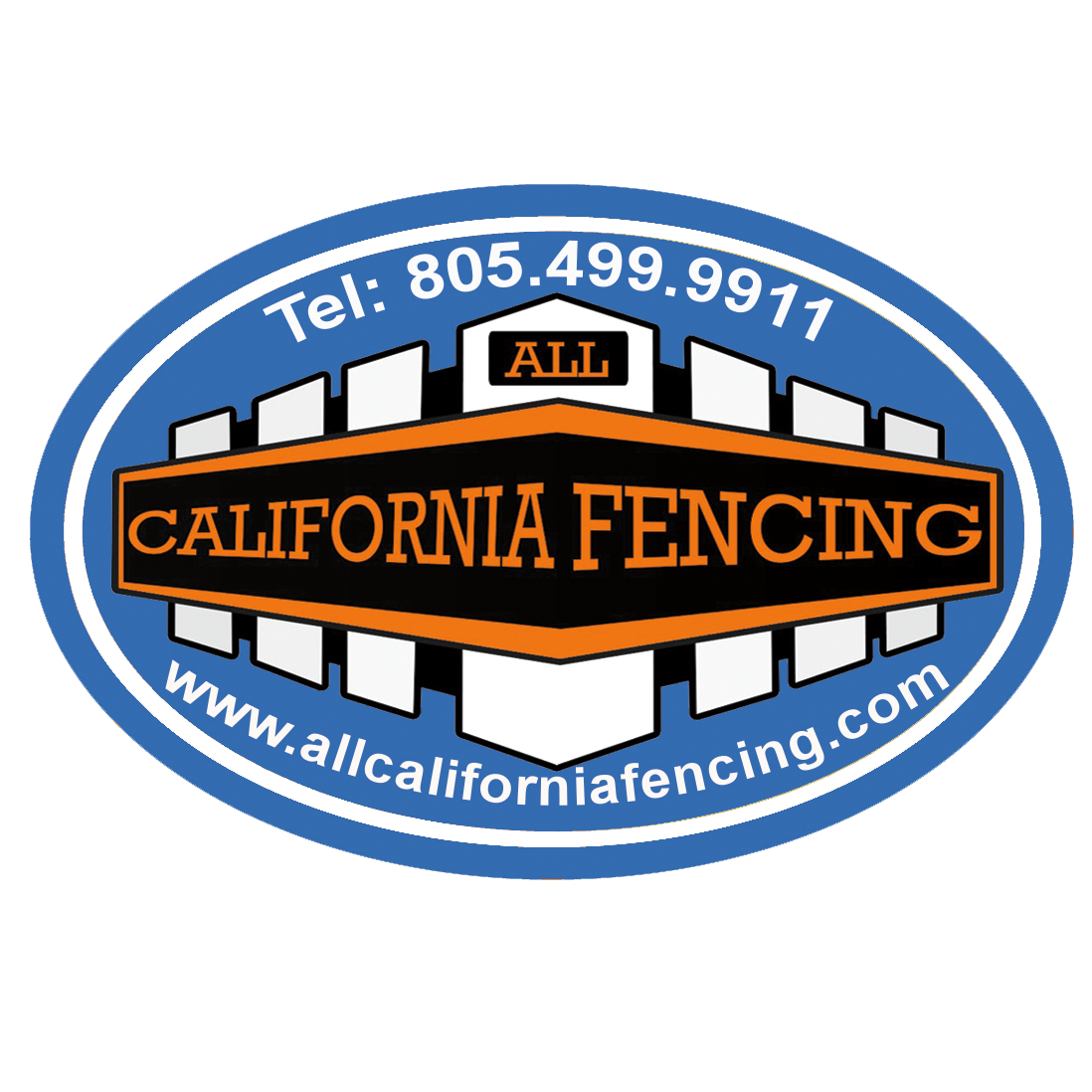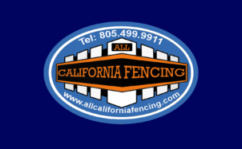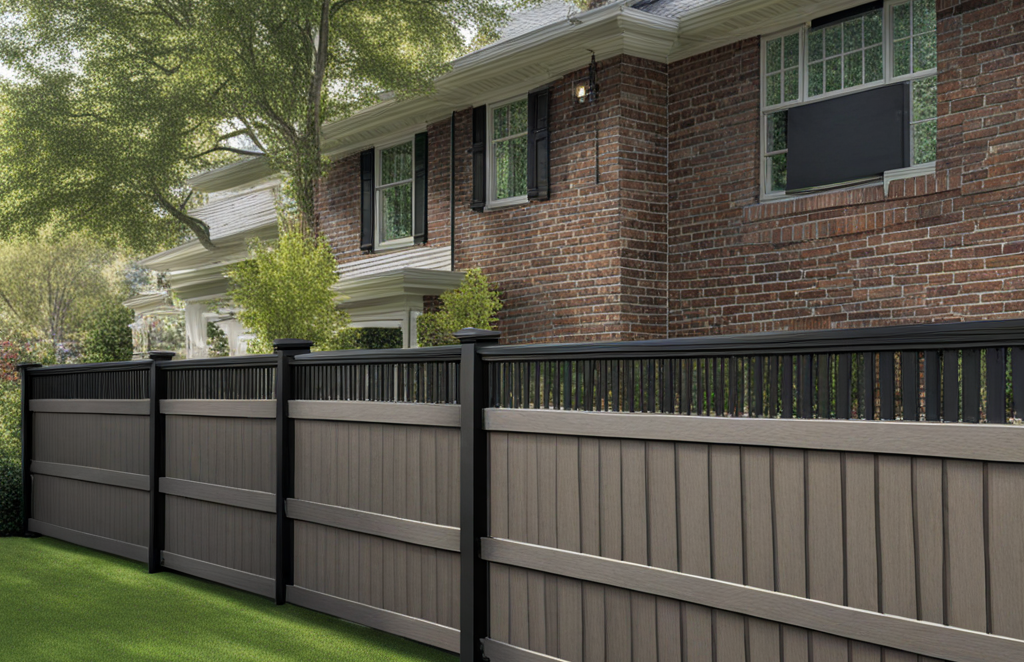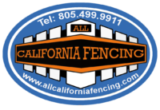Choosing the best fence material is an important decision that can greatly impact the overall look, functionality, and value of your property. With so many options available, it can be overwhelming to determine which material is right for you. In this blog post, we will explore different fencing materials and discuss their advantages and disadvantages. Whether you’re looking for a natural and rustic look, low maintenance durability, or enhanced security features, we have you covered. So, let’s dive in and discover how to choose the best material for your fence.
Different fencing materials to consider
When choosing the best material for your fence, there are several options to consider. The three most popular fencing materials are wood, vinyl, and aluminum. Each material has its own advantages and disadvantages, so it’s important to weigh your options before making a decision.
Wood Fence
Wood fences are a popular choice for their natural and rustic look. They can add charm and character to your property. Wood fences are also versatile and can be customized to fit any style. Additionally, wood fences provide privacy and security for your property.
Vinyl Fence
One of the key benefits of vinyl fences is their durability. They can withstand harsh weather conditions and are resistant to rot, warping, and pests. Vinyl fences also require minimal maintenance and are easy to clean. If you’re looking for a low-maintenance option, vinyl fences may be the right choice for you.
Aluminum Fence
Aluminum fences are lightweight yet strong and durable. They are a popular choice for homeowners looking for both security and aesthetics. Aluminum fences are rust and corrosion-resistant, making them suitable for coastal areas. They are also low maintenance and can be easily installed.
When choosing the right material for your fence, consider factors like durability, maintenance, and cost. Think about the specific requirements of your property and consult with fencing professionals for expert advice and recommendations.
Benefits of wood fence for your property
Wood fences offer a natural and rustic look to your property. The warm and earthy tones of wood can create a welcoming and charming atmosphere. Whether you have a modern or traditional-style home, a wood fence can complement any architectural design.
Wood fences are versatile and can be customized to fit any style. You can choose from a variety of wood types, such as cedar, pine, or redwood, each with its own unique grain patterns and colors. You can also paint or stain the wood to match your personal preference, allowing you to create a fence that truly reflects your style.
One of the main advantages of wood fences is that they provide privacy and security for your property. The solid construction of wood panels creates a barrier that blocks the view from the outside, giving you peace of mind and ensuring your privacy. Additionally, wood fences can be built to any desired height, further enhancing security.
The durability and maintenance of vinyl fence
Vinyl fences are known for their durability and ability to withstand harsh weather conditions. Unlike wood fences, vinyl fences do not decay or warp over time. They are resistant to rot, warping, and pests, making them a low-maintenance option for your property.
Maintaining a vinyl fence is relatively simple. Regular cleaning with water and mild soap is usually sufficient to keep it looking its best. Unlike wood fences that may require painting or staining, vinyl fences retain their color and do not need to be repainted. Additionally, vinyl fences do not require sealing or treating to protect against moisture or pests.
With their durability and minimal maintenance requirements, vinyl fences are an excellent choice for homeowners who want a long-lasting and hassle-free fencing solution.
Why aluminum fence is a popular choice
Aluminum fences are lightweight, yet strong and durable. They offer several advantages that make them a popular choice for many homeowners.
- Lightweight: Aluminum fences are much lighter compared to other materials like wood or iron. This makes them easier to install and handle.
- Strength and durability: Despite their lightweight nature, aluminum fences are incredibly strong and durable. They can withstand various weather conditions, including high winds and heavy rain.
- Rust and corrosion resistant: Unlike iron fences, which are prone to rust, aluminum fences are resistant to rust and corrosion. This makes them a suitable choice, especially for coastal areas or regions with high humidity.
- Low maintenance: Aluminum fences require minimal maintenance. They do not need to be repainted or stained, and they are not susceptible to rot or decay like wood fences.
- Easy installation: Aluminum fences are relatively easy to install, which can save you time and money. They often come in pre-assembled panels that can be easily fitted together.
Overall, the combination of strength, durability, low maintenance, and easy installation makes aluminum fences an attractive option for many homeowners.
Factors to consider when choosing fence material
When selecting the right material for your fence, it’s important to take several factors into consideration. Here are a few key points to keep in mind:
- Purpose: Determine the primary purpose of your fence, whether it’s for privacy, security, or simply aesthetic appeal.
- Climate and weather: Consider the climate and weather conditions in your area, as certain materials may be more suitable for harsh climates or coastal areas.
- Budget: Set a budget for your fence and factor in both the initial cost and long-term maintenance expenses.
By carefully considering these factors, you can select the best fence material that meets your specific needs and requirements.
Comparing the cost of different fencing materials
When choosing the best material for your fence, it’s important to consider the cost. Here’s a breakdown of the cost comparisons:
- Wood fences: Wood fences are generally more affordable upfront, making them a popular choice for budget-conscious homeowners.
- Vinyl fences: Vinyl fences tend to be more expensive upfront compared to wood fences. However, they have lower long-term maintenance costs, which can make them a cost-effective option in the long run.
- Aluminum fences: Aluminum fences are typically more expensive upfront, but they also require minimal maintenance over time. This can make them a cost-effective option for homeowners looking for a durable and low-maintenance fence.
When comparing the cost of different fencing materials, it’s important to consider the overall value and lifespan of each material. While wood fences may be more affordable upfront, they may require more maintenance and have a shorter lifespan compared to vinyl or aluminum fences.
Choosing the right fence material for your specific needs
When it comes to choosing the best material for your fence, it’s important to evaluate your priorities and consider the specific requirements of your property. Here are some factors to keep in mind:
- Evaluate your priorities: Determine what you value most in a fence – is it privacy, security, or aesthetics? This will help guide you in selecting the right material.
- Consider property requirements: Take into account the specific needs of your property, such as slope, soil type, and local regulations. Certain materials may be better suited for certain conditions.
- Consult with professionals: It’s always a good idea to seek expert advice when making a decision. Consult with fencing professionals who can provide recommendations based on their experience and knowledge. They can help you find the perfect material for your specific needs.
By carefully considering these factors, you can choose the right fence material that meets your needs and ensures the security and aesthetics of your property.
Enhancing Security with the Right Fence Material
When choosing a fence material, it’s important to consider security as a key factor. Certain materials, such as aluminum and vinyl, offer enhanced security features that can provide peace of mind for homeowners. Here are some tips to help you enhance security with the right fence material:
1. Choose a Durable and Sturdy Material
Opt for a fence material that is sturdy and can withstand external forces. Aluminum fences, for example, are known for their strength and durability. They are resistant to bending or breaking, making it difficult for intruders to breach your property.
Vinyl fences are also a good option as they are made of PVC, a strong and durable material that can withstand impact.
2. Consider Additional Security Features
Look for fences that offer additional security features, such as built-in locks or security systems. Some fence designs have lockable gates that can further deter trespassers and secure your property.
For added protection, you can install security cameras or motion sensor lights near your fence, which can act as visual deterrents and help you monitor any suspicious activities.
3. Opt for Height and Solid Design
A higher fence can provide an additional layer of security by making it harder for intruders to climb over. Consider a fence with a height that suits your needs and complies with local regulations.
Moreover, choose a fence design with a solid panel rather than one with gaps or spaces. This type of design offers increased privacy and prevents unauthorized access.
By choosing the right fence material and incorporating these security measures, you can enhance the safety and security of your property. Consult with fencing professionals to find the perfect fence material that meets your security requirements and provides both physical and visual deterrents.
Conclusion
Choosing the best material for your fence is an important decision that can greatly impact the look, function, and value of your property. Wood, vinyl, and aluminum are all popular options, each with their own benefits and considerations. Wood fences offer a natural and rustic look, while vinyl fences are low maintenance and durable. Aluminum fences are lightweight and can withstand harsh weather conditions. When making your decision, consider factors like durability, maintenance, and cost. Consult with fencing professionals to get expert advice and recommendations based on your specific needs and property requirements. Enhance your security by choosing a material with added features, such as built-in locks or security systems. Ultimately, by carefully considering these factors and prioritizing your needs, you can choose the right fence material that will enhance the beauty, security, and value of your property.













